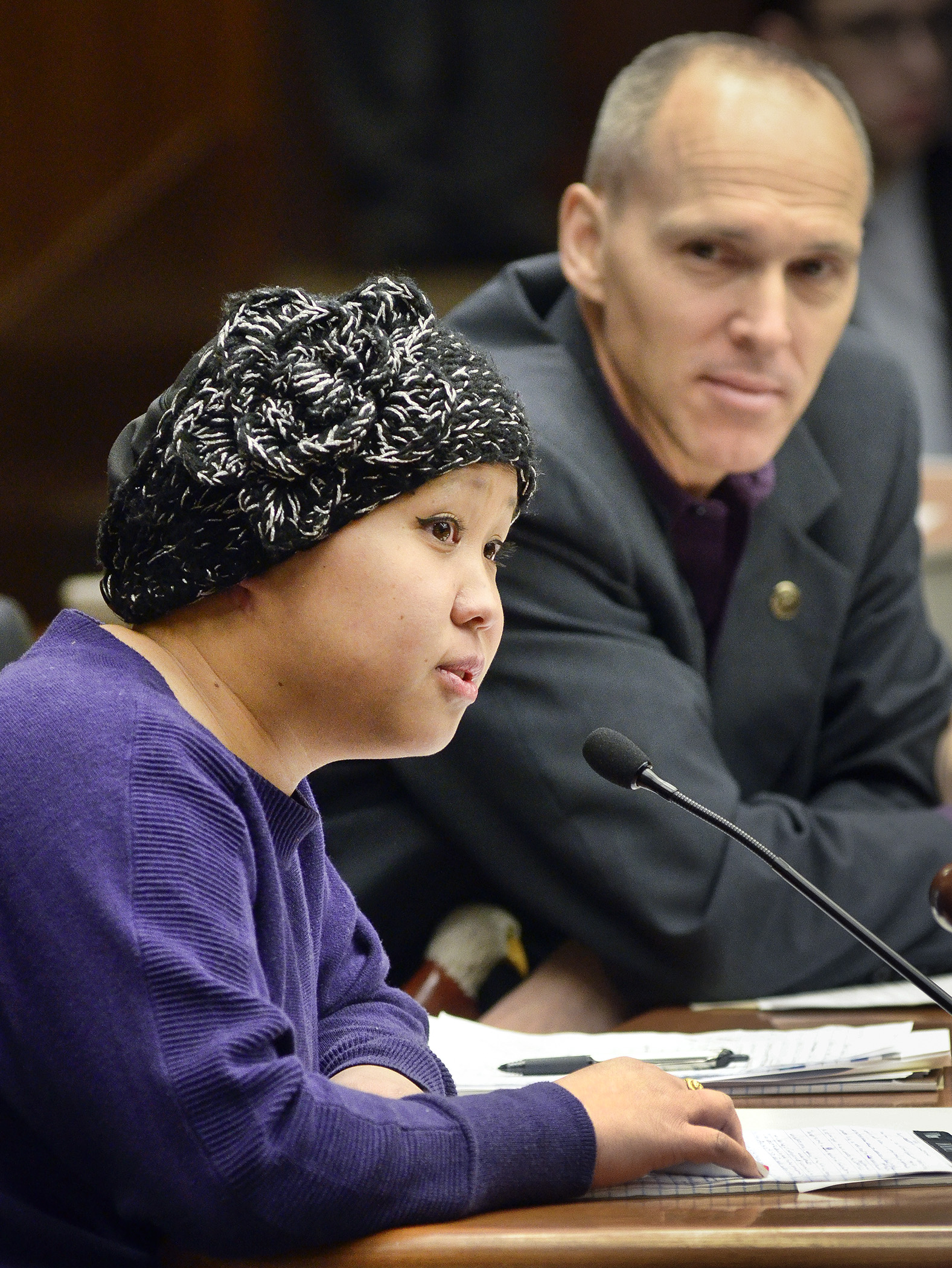Twin Cities Hmong community seeks help in closing achievement gap

UPDATED 1:57 p.m. March 27 -- Testifiers name was previously misspelled.
Advocates from Minnesota’s Hmong community want to ensure their children are not left behind as legislators continue to tackle the state’s well-publicized achievement gap.
HF1930, sponsored by Rep. Rod Hamilton (R-Mountain Lake), would provide funding for the Department of Education to create outreach programs that help Southeast Asian immigrant and refugee families better access early childhood care and education resources, developmental screening and early reading assessments.
The House Education Innovation Policy Committee approved the bill Thursday and sent it to the House Education Finance Committee. Its companion, SF1781, sponsored by Senate President Sandy Pappas (DFL-St. Paul), has been laid over by the Senate E-12 Budget Division for possible omnibus bill inclusion.
Recent research conducted by the Twin Cities-based Hmong National Development, Inc. indicates that Hmong students in early education score two standard deviations below the national average on reading assessments. That gap follows these students when they transition to K-12 education, said Zha Blong Xiong, a professor of college education and human development at the University of Minnesota.
About half of Hmong students in the Twin Cities are considered proficient in MCA reading exams, Xiong told lawmakers. Many of these students would have qualified for programs like early learning scholarships, but their parents aren’t aware of the opportunities, he said.
“We believe that family engagement efforts are needed to ensure the hardest to reach populations, like Southeast Asian population, are gaining access to these wonderful early child education resources to close the achievement gap.”
Sinying Lee is a working mother to three young children, two of whom attend a St. Paul preschool on early learning scholarships awarded through the Department of Education.
Lee said she represents a growing demographic in the Twin Cities Hmong community, where many are first generation-born Minnesotans who have started families, but struggle to access available resources to ensure their children are kindergarten ready.
Currently, 43 percent of the Hmong population in the Twin Cities is under 18, but only 14 percent of Hmong adults living in Minnesota have obtained a higher education degree, said Bao Vang, president of the St. Paul-based Hmong American Partnership.
“Creating a new support system of outreach that could get those parents access to available resources would help close the achievement gap for a community whose academic success is vital to the future of Minnesota,” Vang said.
Related Articles
Search Session Daily
Advanced Search OptionsPriority Dailies
Ways and Means Committee OKs proposed $512 million supplemental budget on party-line vote
By Mike Cook Meeting more needs or fiscal irresponsibility is one way to sum up the differences among the two parties on a supplemental spending package a year after a $72 billion state budg...
Meeting more needs or fiscal irresponsibility is one way to sum up the differences among the two parties on a supplemental spending package a year after a $72 billion state budg...
Minnesota’s projected budget surplus balloons to $3.7 billion, but fiscal pressure still looms
By Rob Hubbard Just as Minnesota has experienced a warmer winter than usual, so has the state’s budget outlook warmed over the past few months.
On Thursday, Minnesota Management and Budget...
Just as Minnesota has experienced a warmer winter than usual, so has the state’s budget outlook warmed over the past few months.
On Thursday, Minnesota Management and Budget...